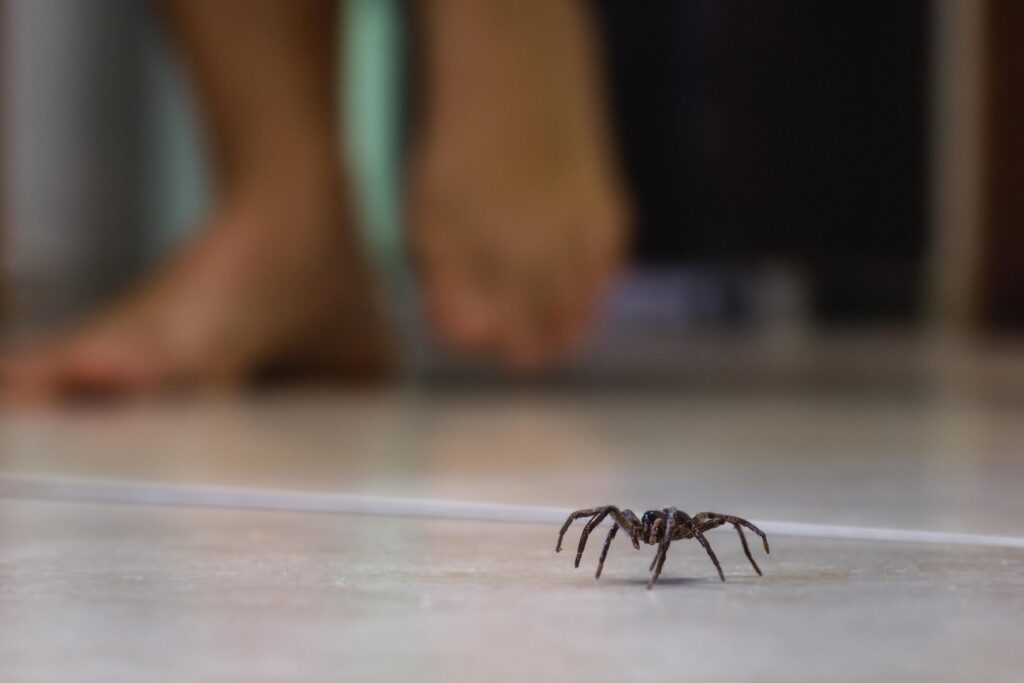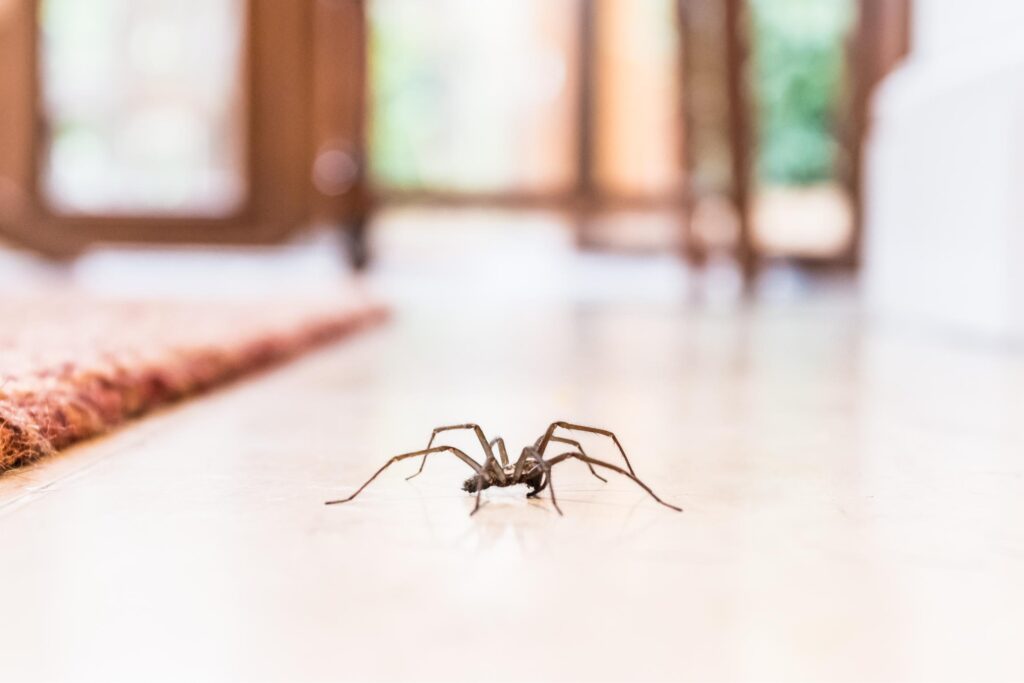You spot a spider in the corner of your ceiling—or worse, scurrying across the floor just before bed. If you’ve noticed more spiders in your home lately, you’re not alone. These creepy crawlers love finding their way inside, especially during certain times of the year.
But why are spiders suddenly invading your space, and more importantly, how can you keep them out for good? Let’s break it down.
Why Are Spiders Invading Your Home?
Spiders don’t enter your home to scare you—they’re just looking for food, shelter, and a safe place to reproduce. Here are the top reasons why you’re seeing more of them indoors:
1. Your Home Is a Buffet for Spiders
Spiders eat insects, so if you have a bug problem, you’re basically rolling out the red carpet for them. Flies, ants, and mosquitoes are all prime spider food. If these pests are around, spiders won’t be far behind.
2. They’re Seeking Warmth or Moisture
Spiders are sensitive to temperature changes. As the weather cools, they look for warm, dry places to shelter. Some species, like cellar spiders, prefer humid environments, making basements, bathrooms, and crawl spaces ideal hiding spots.
3. It’s Mating Season
If you notice an uptick in spider activity during the fall, it’s likely because they’re looking for mates. Male spiders roam in search of females, which means they’re more likely to end up inside your home.
4. They Found an Easy Way Inside
Spiders don’t need an invitation to move in. They sneak through cracks, gaps in doors, and torn window screens. Even bringing in firewood or storage boxes can unknowingly introduce them into your space.
5. They Hatched Indoors
Seeing a lot of tiny spiders? That’s a sign an egg sac hatched inside your home. Spiders can lay hundreds of eggs at a time, leading to a sudden increase in their numbers.

How to Keep Spiders Out of Your Home
Spiders might be helpful for controlling insect populations, but that doesn’t mean you want them in your living space. Here’s how to make your home less inviting to these uninvited guests:
1. Get Rid of Their Food Source
Fewer bugs mean fewer spiders. Reduce the number of insects in your home by:
- Keeping your kitchen clean and storing food in sealed containers.
- Turning off outdoor lights at night to avoid attracting insects.
- Using a dehumidifier in damp areas to prevent insect infestations.
2. Seal Cracks and Entry Points
Spiders can squeeze through the tiniest gaps, so sealing your home is essential:
- Install weather stripping on doors and windows.
- Seal cracks in walls, foundations, and floors.
- Repair or replace torn window screens.
3. Declutter and Remove Hiding Spots
Spiders love dark, cluttered spaces. Keep your home organized by:
- Storing items in plastic containers instead of cardboard boxes.
- Keeping storage areas, closets, and garages free of unnecessary clutter.
- Moving firewood and outdoor debris away from your house.
4. Use Natural Spider Repellents
Want to keep spiders away without using harsh chemicals? Try these natural solutions:
- Peppermint oil spray – Mix a few drops with water and spray around doors, windows, and baseboards.
- Vinegar spray – A 50/50 mix of vinegar and water works as a natural deterrent.
- Citrus peels – Spiders dislike the smell of citrus, so place lemon or orange peels near entry points.
5. Keep Your Home Clean
Regular cleaning can significantly reduce spider activity:
- Vacuum and dust frequently, especially in corners and under furniture.
- Remove webs as soon as you see them to discourage spiders from staying.
- Shake out clothing, blankets, and shoes before use—spiders love dark, hidden spaces.
6. Try Diatomaceous Earth (DE)
Diatomaceous earth is a natural powder that kills spiders and other pests without harming people or pets. Sprinkle a thin layer around entry points and areas where you’ve seen spiders.
7. Call a Pest Control Professional
If you’re still dealing with a spider problem despite your best efforts, it may be time for professional pest control. An expert can identify entry points, eliminate existing spiders, and put preventative measures in place.

Common Household Spiders: Which Ones Should You Worry About?
Most spiders in your home are harmless, but it’s good to know which ones you’re dealing with:
- House Spiders – Small brown spiders often found in corners; harmless but annoying.
- Cellar Spiders (Daddy Longlegs) – Thin-legged spiders that prefer basements and garages; harmless.
- Wolf Spiders – Fast-moving spiders that don’t spin webs; they can be intimidating but aren’t dangerous.
- Brown Recluse (Venomous) – Not common, but if you see one, be cautious. Their bite can be serious and may require medical attention.
Keep Your Home Spider-Free
Spiders may be beneficial for keeping other bugs in check, but they don’t belong inside your home. By eliminating their food source, sealing up entry points, and using natural deterrents, you can significantly reduce the chances of a spider infestation.
If you’re dealing with a recurring spider problem, Genuine Pest Control can help. Our expert team offers safe and effective solutions to keep your home spider-free. Contact us today for a free consultation!
